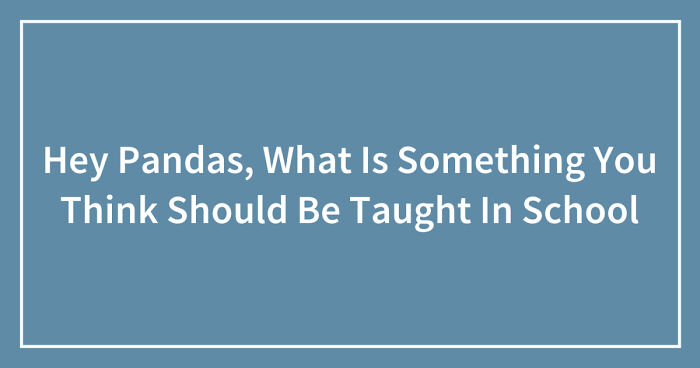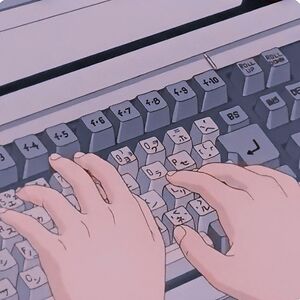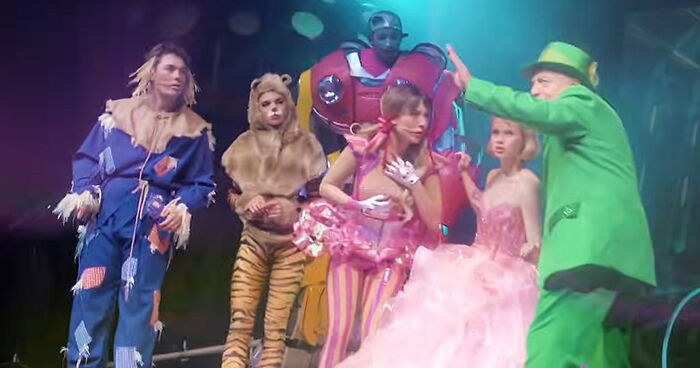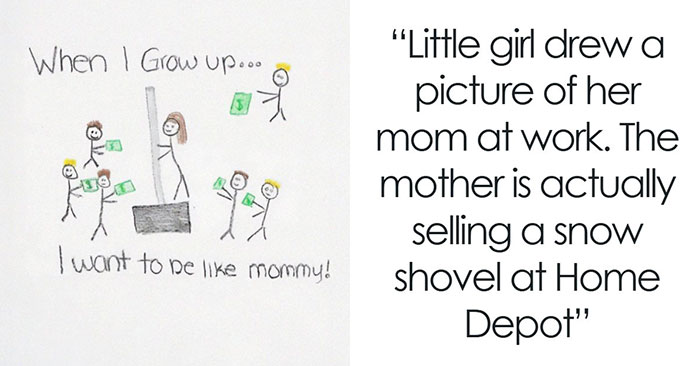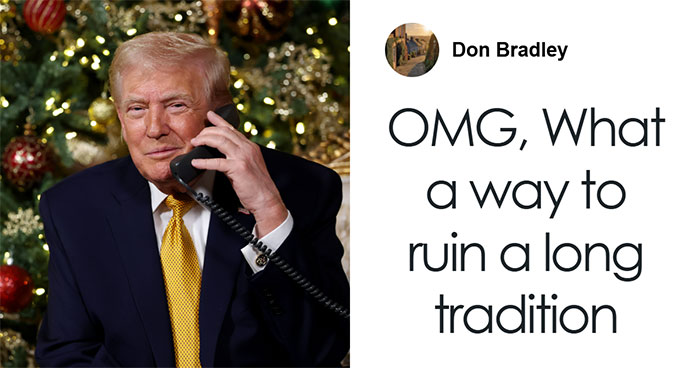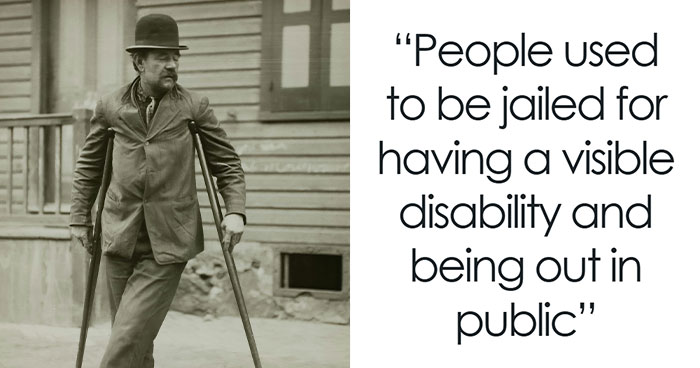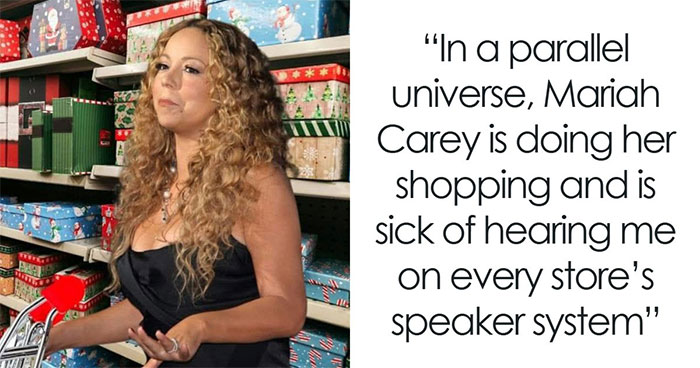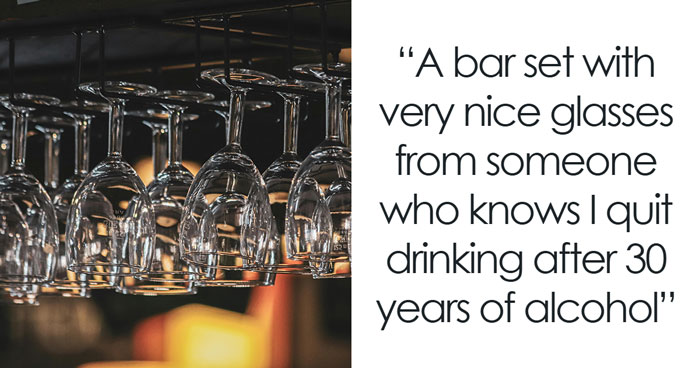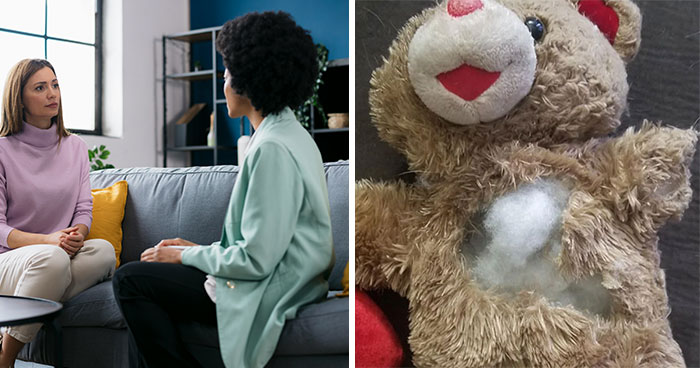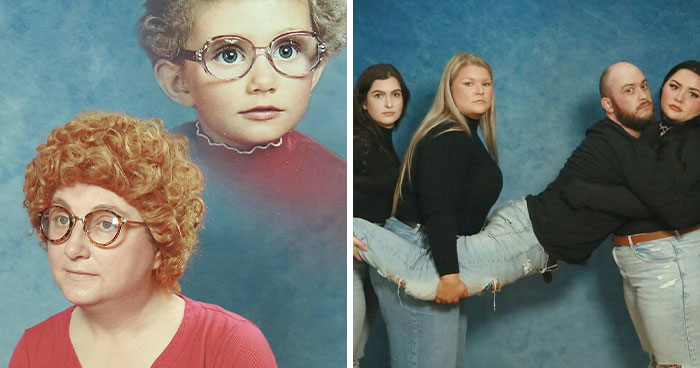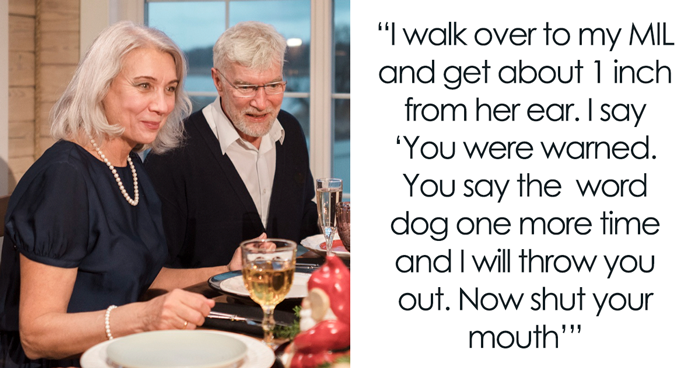Share your opinion.
This post may include affiliate links.
Basic Life support and first aid. Saves lives every day
We learn this as a compulsory in Grade 12 in Canada, or at least in my province.
The importance of how to setup, stick to and balance a budget. The pitfalls of credit cards and how to build credit and keep your credit score in good condition.
Yup. I was going to say this. Financial literacy and budgeting skills. All about loans, credit cards, credit scores, promissory notes, interest accrual, taxes, mortgages and escrow, insurance, maybe even delve a little into investing and 401ks.
Self-defense. It would empower those who are not confident, make the bullies afraid of picking on random kids, teach mutual respect and self-improvement. And now with the frequent school shooting situations, it's even more important.
Instead of making bullies afraid, which is using violence to cure violence, properly taught self-defence would teach them to discipline their minds and bodies, and hopefully give them respect for other people.
ASL (American Sign Language) or the form of sign language you have depending on where you live. People need to be more open to the deaf community, and learning their language is one way to start.
There are many sites online that teach ASL for free and tons of videos on YT doing the same, .
Media literacy is more important than ever now. Too many people lack the tools to realize when and how they are being manipulated by media, whether that's buying products they don't need, or supporting political movements that work against their own self-interests.
Girls are always told to stay home at night and not to wear small clothes. I think schools should teach boys ( and girls) how to respect everyone , and how together we can stop the discrimination. Why not instead of telling girls to stop wearing short clothes , tell boys to keep their dirty mind with them ? Why not tell boys not to look at a girl in a dirty way ?
I think teachers should teach/encourage students to be creative in every subject, doesn't matter what that is. In my opinion, creativity is very valuable in life.
Yes! It is so important because it helps our minds to develop better. Also, being creative in whatever way helps to boost your confidence.
How to recognize the tricks that narcissists and abusive people use... gaslighting, love-bombing, grooming, moonwalking and the like. And how to safely react and escape them.
The truth. For example I was taught to believe American colonists sought its independence for the right to a free, quality life, liberty & the pursuit of happiness. This, of course, was declared by a group of tax-evading slave owners who claimed all men are created equal. Ooooookay.
Real history is so much more interesting than the sanitized version. Class would be in high demand and everyone would want to know more!
Indian Schools-Basic sex education People in our schools are yet to even know the basics of the
Financial/money management. Something I would have appreciated!
Parents are the main factor in how good or bad the children are with money. If the parents make it a habit of spending money they don't have, the children won't be good at budgeting and handling money. If the parents only spend money they have and postpone purchases until they have saved enough, the kids will know what it is to save and budget.
How to do your taxes, car repair, house repair, get a job, defuse a fight, have a political debate without violence, religious history, equal rights for all.
Past war/invasion/'discoveries' of 'new' lands from BOTH sides, not just those who were 'victorious'.
And not just from who were losing. People need to learn that all human civilisations have committed atrocities. That western colonisers did horrible things and we should have that in mind to not repeat them. But that any other group also did them, like the Mayan using slaves, the Mongolians raping and pillaging, the Bantu committing genocide against the san etc.
Critical thinking. Should start in kindergarten. Would help with so many other things.
Psychology, sociology, business, law. These are usually subjects you get in college, but I think they should be taught from a young age and are as important as history or math, for example. Also, sex education. Still not very common where I live.
All of these were taught in my high school (Australia). Psych introduced in compulsory science class before time came to choose electives. Similar with business and law- we had a compulsory 'economy and society' class and then could be selected as electives.
The truth.
MANNERS! How to act in polite company. Put down the phone! Look someone in the eye when they talk to you and you them, shake hands, open doors, basic introductions, learning people’s names, how to speak clearly in public and on the phone. Most people show lack of basic speech skills and education by simply talking. Posture could be a subcategory here.
Sustainability…..from the clothes you put on (chemicals, killing villages with toxic waste into rivers) to the books/pads/paper you use (all readily recycled) to the food grown onsite for school dinners (yeah, bring those back, have you seen the plastic waste from home lunch-boxes) to the lessons being taught on up-cycled computers (not every piece of tech needs to be in a tech-graveyard polluting the atmosphere) ……and this is just the start. Feel free to add more…..
Thankfully I was taught a lot of sustainability and ethics at school and had parents who also understood the importance of this. I think a lot of students are aware of this but they aren't reinforced by their family, media etc.
how to get a job. most school's dont and will never teach this and just toss the students into situations with things that are completely useless in the world unless they aim for a specific job they arent even guaranteed to get because... they dont know how!
My school did a whole unit on this during our Economy and Society class. This included writing resumes and having mock interviews.
Comon sense. Also basic skills like cooking, basic mecanics, changing electric plugs, tires, sewing, putting back buttons, cleaning your own electronic devices. And how to deal with emotional issues
Financial well-being and just how to budget, handle credit, pay bills... all that. I didn’t learn how to be financially responsible until my 20’s and 30’s. Never discussed in school.
Thankfully my school was able to teach this, in a fun and meaningful way through a 'game of life' type thing where we had mock bios each
Basic survival skills, from starting a fire to what to do if you're being followed to not leaving your drink alone at the bar.
Maybe instead of making us memorize stuff, they can help us understand it. And thats whats wrong with the American education system.
I was once told this in algebra class when I asked the "teacher" to explain what the parts of an equation stood for. His reply was " It doesn't matter, just memorize it" I really wish I was making this up. When I got to college I found out I wasn't actually bad at math. I had just had some really bad "teachers"
Why the dress code is so relaxed on boys but not girls 😤
I don't think this needs to be taught, everyone already knows the reason.
Where food comes from. I mean there are people who don't understand that french fries come from potatoes. That food is grown on farms.
The school district my munchkins attend have an agriculture class. Unfortunately it's only an elective so many students are really missing out.
The basics of experimental work, pre-clinical and clinical. I'm certain it would obliterate all the distrust people have towards science and scientists by teaching people the how's, why's and when's of experimental work and how science is surprisingly resilient to fraude.
How the American healthcare system works. How insurance works. What a premium, deductible, copay, and coinsurance is. How to find a doctor and make an appointment. Look, I know a lot of people hate our system. But for now, it’s all we got and we need to teach people how to work within it until we can get something better. Raise educated voters.
It's a shame some countries exempt this in their education.
Economics, budgets, cost of living, how to read (yes, my friends’ son graduated and can barely read), mental health, how to further their education without getting massively in debt….
Sex Ed. Kids need to know what the heck is going on in their bodies, what is what (!) and how to avoid std's and pregnancy.
Traffic education. It's quite amazing how ignorant a lot of people are about their rights and duties in traffic. Even as a pedestrian you have to comply to traffic laws and I see kids driving bikes and bicycles in blissful unawareness of the risks but also of their legal responsibilities. Not not mention older drivers who got their driver's license 30 years ago and don't even know what newly introduced traffic signs mean. I surely do not hope we're heading for a situation where people do not know traffic laws anymore because self-driving cars are programmed to obey traffic laws for them.
How to do the taxes. I have no clue and I’ll be moving out in a year
No one knows how to do taxes. Seriously. You have to have a degree in it. Tax offices exist because of this crap.
I think that schools should teach American Sign Language so other students can talk with deaf people.
Drop the word "American" because each country has its own sign language.
Native American History. In the US we are taught history from the moment of European settlement but no mention of the natives we stole the land from.
I was so annoyed that I didn't learn much about the Australian Aboriginal history etc until University and then it was only because I was doing a teaching degree. Hopefully that means that more is being taught about it in schools now, but somehow I doubt it.
To read and write in cursive so that you can understand what messages our forefathers (and mothers) left from the past. A good example is The Declaration of Independence...... Many schools do not teach this anymore. Kudos on the ASL and ESL mentions!
Cursive is not more than letters written in a slightly tilted flowing style. It's not an entire new language or scripture. We never had special lessons in "How to read cursive." yet I'm perfectly able to read the declaration of independence and the original 16th-century Dutch "Plakkaat van Verlatinge" that it was based on.
Mental Health. What coping skills are. How to be emotionally aware of yourself. That you don't have to believe everything you think.
Martial arts. I’m currently a second-degree black belt in Taekwondo, and I’ve been training for over a decade and through two diagnoses. Looking back as a college freshman, I learned more net valuable material at my academy from just my first 5 years of training than my entire 13 years of school. (Integrity is an undeniably important trait of an ideal employee; how are proofs relevant to taking pictures?) For example, self-control could have prevented many tragedies from the past, and not every well-known person has self-discipline nor respect. Maybe it doesn’t teach everything essential about an employee, but it covers a lot more than normal K-12 school. Also, self-defense comes in handy on the off chance that something should happen. I’ve learned street-fighting techniques, knife defense, and even gun defense.
In the US martial arts really cannot be taught in school. The country would need a general overhaul for that to work.
"Integrity is an undeniably important trait of an ideal employee". Education shouldn't be focused on making you an ideal employee. It should be focussed on making you a happy independent thinking person who is able to make the best decisions in their own interest instead of those of anyone else.
Lego Technic and Lego robotics.
Pre-colonial history of Africa and the Americas. In my country they pretty much consider history started when europeans entered.
This is the same in Australia. Makes me ashamed that it still isn't being taught consistently in our schools. The Aboriginal nations have been on the land for more than 40000 years. I did learn more in university and during professional development sessions as a early childhood teacher but there aren't enough resources available. As a non-Aboriginal teacher I (and many other teachers) feel I just don't know enough about how and what to incorporate into lessons and worry about things being too tokenistic. (eg the lessons/experiences only being toted out during NAIDOC week etc)
Everyone should take cooking and basic home Ec. Classes. Knowing how to cook and sew is actually really useful
Informatics. I am surprised that nobody wrote this. Using a computer is crucial nowadays to do most jobs. And while most young people use devices like a smartphone I have met a ridiculous amount of them that don’t know how to use basic things like simple excel (not the complex part of it), how to format a device or things like that. Everybody should learn basic informatics, basic office (or similar programs), how to do virus scans, what advertisements not to trust, or how to format your computer.
At my primary school we had computer lessons every year which included things like how to send an email, touch type, use word doc etc. Then in high school we has information technology from year 7-10. This is where we learned how to use excel, type and format professional letters, make power points etc. I was In school until 2008, so things have probably changed a bit since then. I know they learn how to use smart boards now.
That people in different countries are just that - People ! We shouldn't be judging all people based on their leaders, their current political systems or tiny radical subsets of their chosen religions. e.g. Not all Brits are brexit loving, right wing colonialists Not all Americans are trump supporters Not all North Koreans are isolationalists
Are people not taught this? Both in school and everyday life. I know there is bigotry around but I think it is less common than this makes it sound.
In the US, we generally don't learn another language other than English until High School, or at least at the schools I've been to. But the US doesn't have an official language and it can be really beneficial to know a bit of Spanish, considering a lot of people speak it. We should start other languages earlier. I'm a freshman and I can tell you my name, what I like, what I AM like, and what I'm wearing. Why only English in a country with no official language?
It is much easier for small children to pick up a second language than older children or adults. Start early.
How money works! Since people graduating high school are expected to decide what they want to do for work for the foreseeable future, let's teach them how much money you actually need on average. Like how much should you expect to spend on housing? Food? Insurance? If you want to be "comfortable" how much do you need? As a teenager I thought $20,000 a year sounded astronomical because I had no idea what things cost. I know not everybody has the same opportunities but let's at least give them an idea of what they're getting into!
Sex and drug education. The school’s whole discussion about it is “Don’t do it.”
In Australia we have a program that runs in Primary Schools called Life Ed where we learn all about drugs and alcohol, personal safety, cybersafety, food and nutrition, physical activity, social and emotional wellbeing and the human body. (It is taught by/in conjunction with Harold the Giraffe which kids love- and still talk about as adults :) ) The topics present facts in meaningful ways and aren't just about abstaining from dangerous behaviours. Then in high school these lessons are reinforced in health classes for a more up to date age appropriate lessons.
Basic law. We are all held accountable to these rules, but must don't even know what they are.
That people are not above every other life form and that we should understand everything's place and value. Hence, not to kill small creatures like flies just because they are in the same room. Also, to be compassionate and understand everyone's differences so that we nurture people who are just in it for themselves.
Things like how to pay bills and stuff. I wanna learn useful things, not another math function I'll never use again.
Social skills. Like dining, small talk, dancing, dressing and grooming. It will help keep them out of the basement and prevent incels.
Learning social skill are great, but I don't think learning dancing, dressing and grooming prevent incels. Much better to learn about healthy relationships and wellbeing.
What healthy and unhealthy relationships are about, and where to go to if you're in an unhealthy relationship, whether it's with your parents or a bf/gf. What consent is and what coercive abuse is. This kind of information could save so many kids.
Ok, so I'm in the U.S., so this list might not pertain to your country, but here goes nothing. First off, definitely respect. I mean, I hear so many stories about Karens being b*tches and getting pissy when the world doesn't revolve around them and their selfishness. C'mon, be better than that. Also, basic life skills like cooking, removing stains fabric, manners, cooking, etc. ASL or your country's equivalent. Also Latin and a basic understanding of romance or slavic or germanic languages so you can communicate basic needs if traveling abroad. This is specifically for America, but stuff like how the government works and how America is not, in fact, the best/most important country in the world. We have done some pretty terrible things and continue to do some terrible things, but we should own up to that. And lastly, how to recognize if and how f*cked up, how to own up and admit that you f*cked up, how to apologize, and how to take steps so you don't make the same mistakes again. (This should be taught by parents, but I digress.)
Definitely agree with learning how to own your mistakes and how to apologise. This should be modelled by all adults but especially teachers and parents. That is the best way students learn. I remember my grandad telling me when I was studying to be a teacher about an incident when he was teaching. Something happened and he reprimanded a student in front of the class. Later he found out he had scolded the wrong child. The next day he came into class and the first thing he did was ring up with the whole class the incident. He told the class that he had made a mistake and he apologised to the student, not only for accusing the wrong person, but also for doing so in front of everyone else. This was a very powerful story and I believe it might have been the most important lesson he ever taught. Anyone, even adults in charge can be wrong.
Basic cultural anthropology. We'd have a lot less people saying that things are "traditional" that are not - that are actually new. And a lot less people saying things are new that are not. For example, women being treated as less than equal: New. Children being educated by society: Not New. It's a feature of every known current and past society throughout history. Universal healthcare: Not new. In fact, that is traditional way of life for people. Being allowed to die if you are poor: New. Societies have rich and poor people: New. Dancing and music: Not new. Other than some more modern societies with religious restrictions on this, every society known to man has music and dancing. Marriage: Not new and not a religious construct. Every society has marriage. Building forts: Not new. It seems to be a step in children's progress to build their own little houses at certain ages to practice for being an adult.
Agree in all but marriage. Yes, most societies have a concept of marriage. But not all have the same western concept (of two people) and not all people were married. For example in Amazonian tribes it is extremely common for women to have multiple partners (and vice versa). So common that the majority don’t have a concept of “father” as we do. All the men that had sex with that woman are the fathers.
The truth and not the lies about things some people are talking about
Apparently we need to teach citizens from USA that they are not the only country in the world, that most other countries have access to internet and that the world does not revolve around them. It’s ridiculous the amount of people online (see this post as an example) who act as if only USA citizens have internet.
Just because a few Americans are focussed on and mention what happens within their country, doesn't mean that a majority of the Americans aren't aware of other countries. But it's this kind of polarisation that is going on BP which divides our societies within themselves and from each other. The constant hammering on how bad men are and how oppressed women are, how broken the American society is and how excellent life in Europe is, is driving us all apart. People are people and they all have problems specific for their country. Seems a bit odd to attack Americans for mentioning what they would like to change in their education.
Universal kindness and empathy. Tolerance leads to acceptance which leads to understanding.
Understanding leads to peace. And if we had peace, we could focus more on scientific discoveries and education and solving world hunger and overpopulation and SPACE EXPLORATION instead of WAR and HATE and SELFISHNESS.
Critical thinking. Most of the school-systems around the world are authoritarian. We need to teach the kids the basic things, what we sure know about our world, because there has to be a solid basis, to get start asking questions, without sounding dumb. With a solid knowledge-base, however, critical thinking is a must-have, to move on. Also, stuffs what you need for your every-day's adult-life. Like how to deal with taxes, renting an apartment, managing your own incomes, dealing with authorities in different issues, and so on...
Latin It's the mother of (almost) all european languages and gives great foundation for learning further languages. Cultivates organised thought and speaking.
School is supposed to prepare children for life, but it doesn't. Most of these suggestions have merit. These are things that people learn from living, but some people really struggle to learn them or learn too late. Not everyone grows up with good role models, or in a family with capable members to learn from. School does need to teach kids how to read and write and add up, and the basics of the other subjects, but the stuff listed would make them better people. And the world needs a lot of those.
Because this is closed, I'll put mine on here: Honest? How to make sweets (candy) and chocolate Realistic? Why spelling is weird Achievable? I draw a blank PS Homework was created as a punishment. Google it
I don't think there are enough room in a school curriculum for most of these even as electives let alone mandatory.
School is supposed to prepare children for life, but it doesn't. Most of these suggestions have merit. These are things that people learn from living, but some people really struggle to learn them or learn too late. Not everyone grows up with good role models, or in a family with capable members to learn from. School does need to teach kids how to read and write and add up, and the basics of the other subjects, but the stuff listed would make them better people. And the world needs a lot of those.
Because this is closed, I'll put mine on here: Honest? How to make sweets (candy) and chocolate Realistic? Why spelling is weird Achievable? I draw a blank PS Homework was created as a punishment. Google it
I don't think there are enough room in a school curriculum for most of these even as electives let alone mandatory.

 Dark Mode
Dark Mode 

 No fees, cancel anytime
No fees, cancel anytime 






